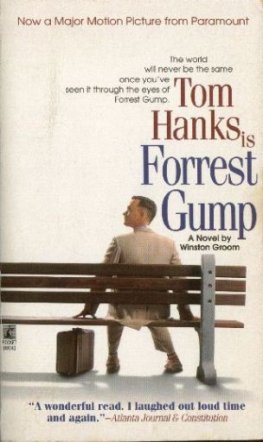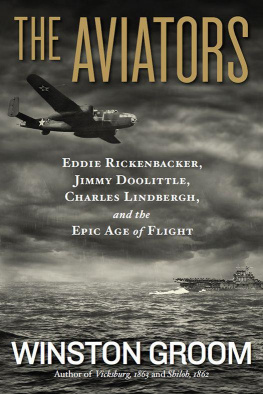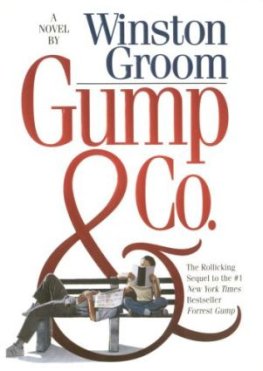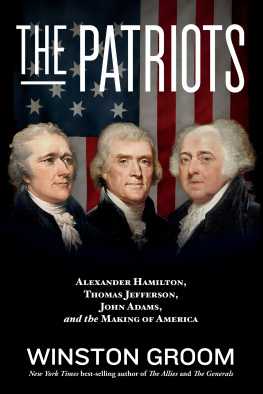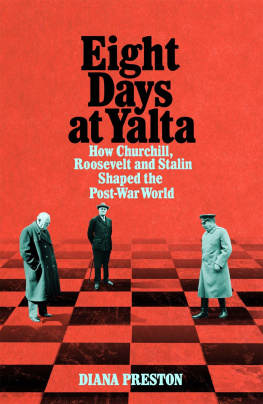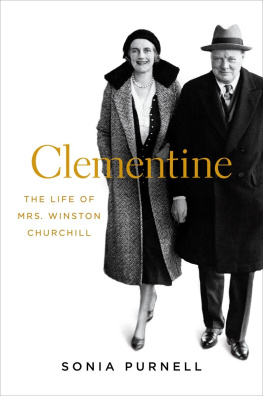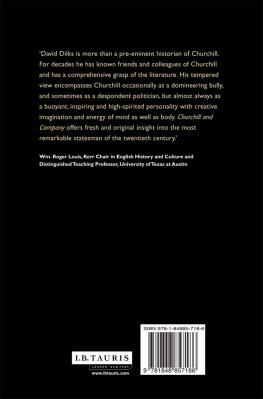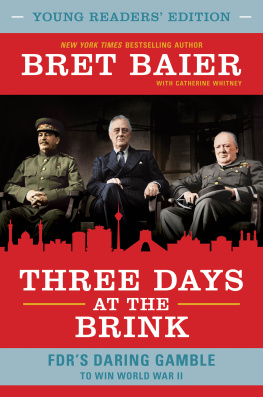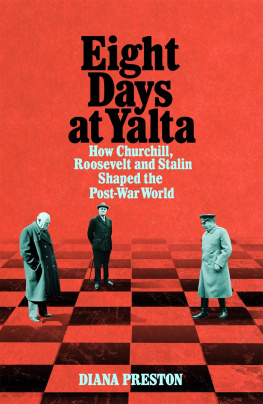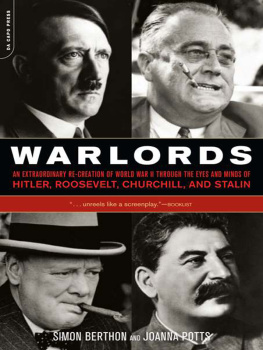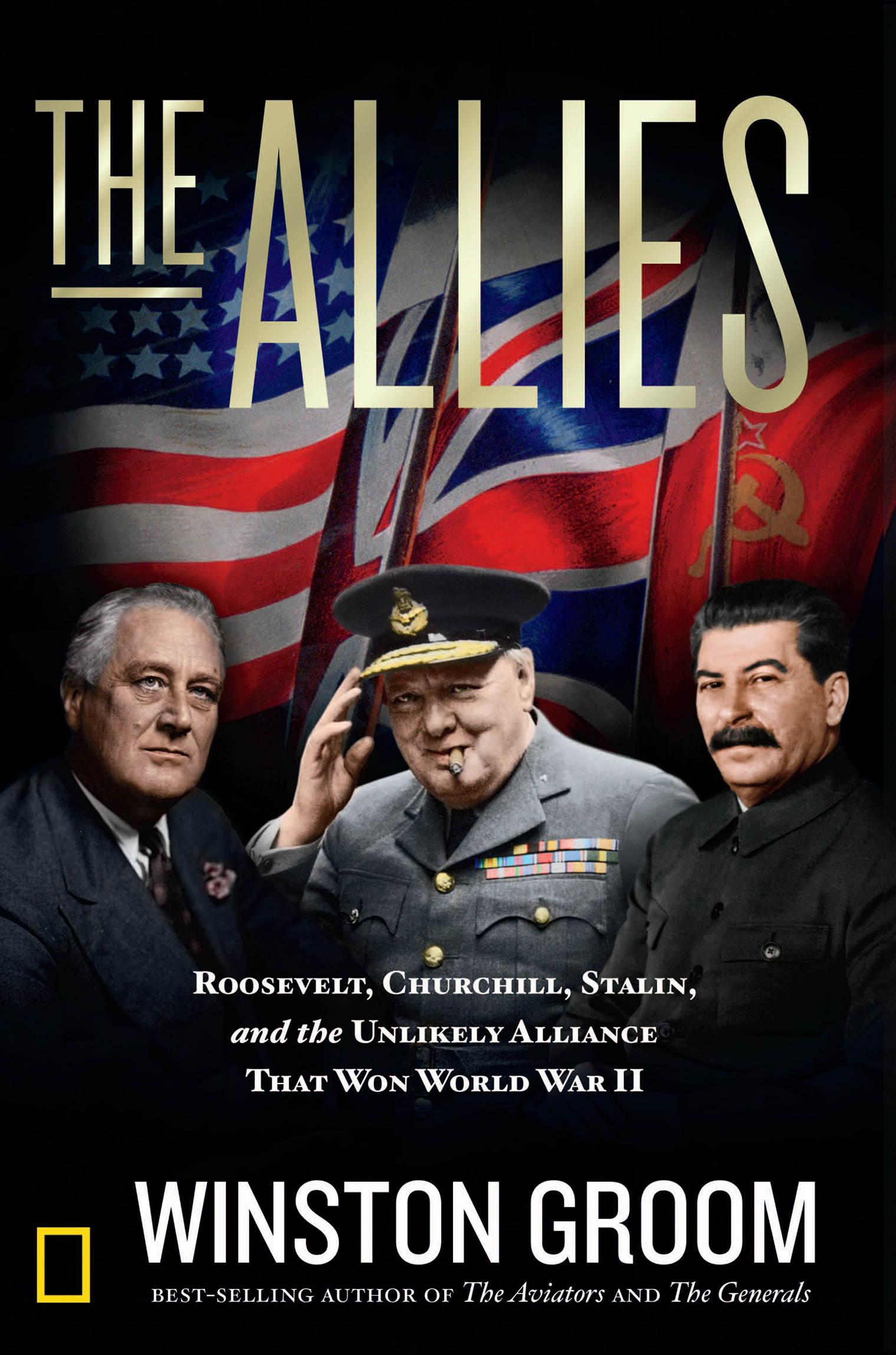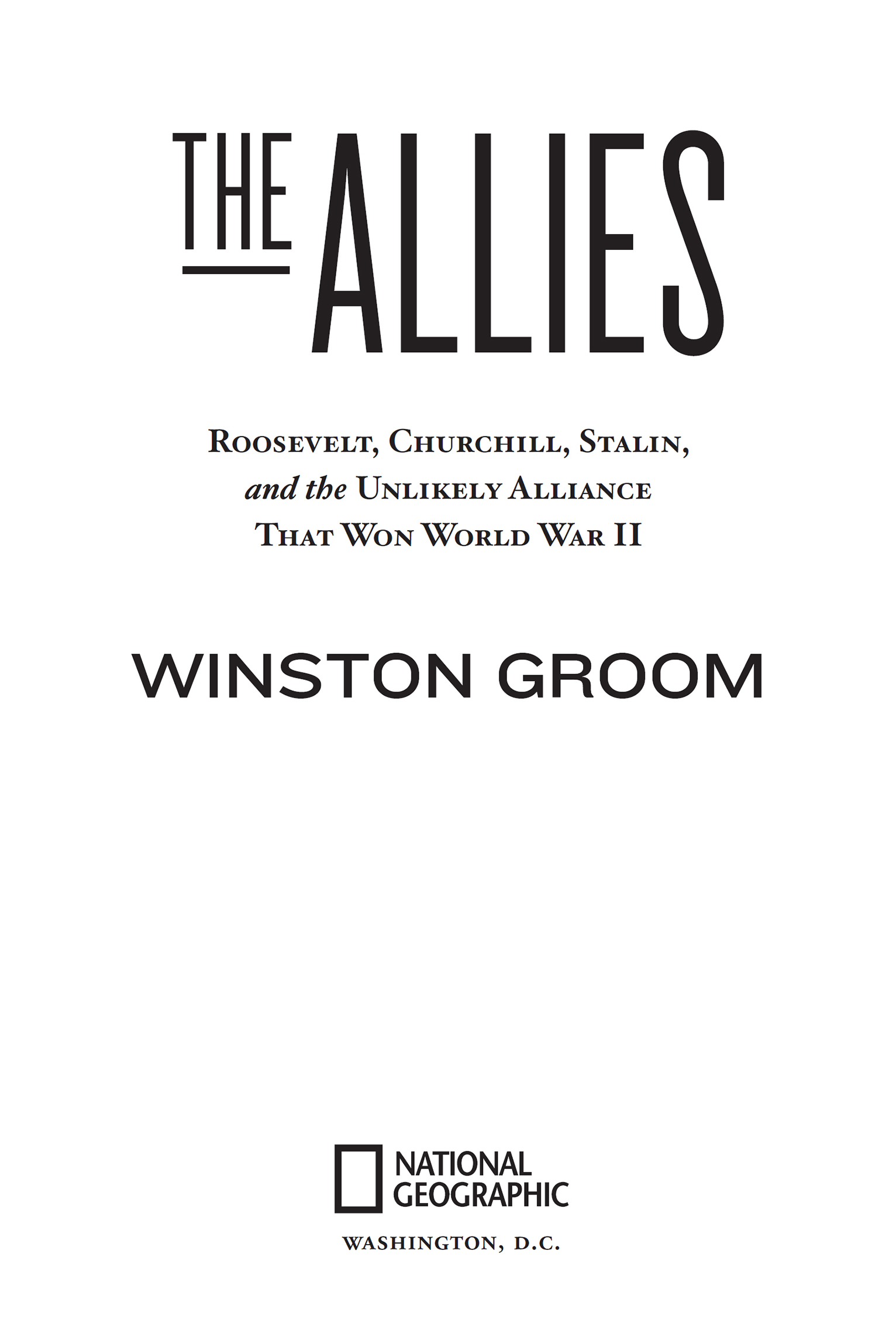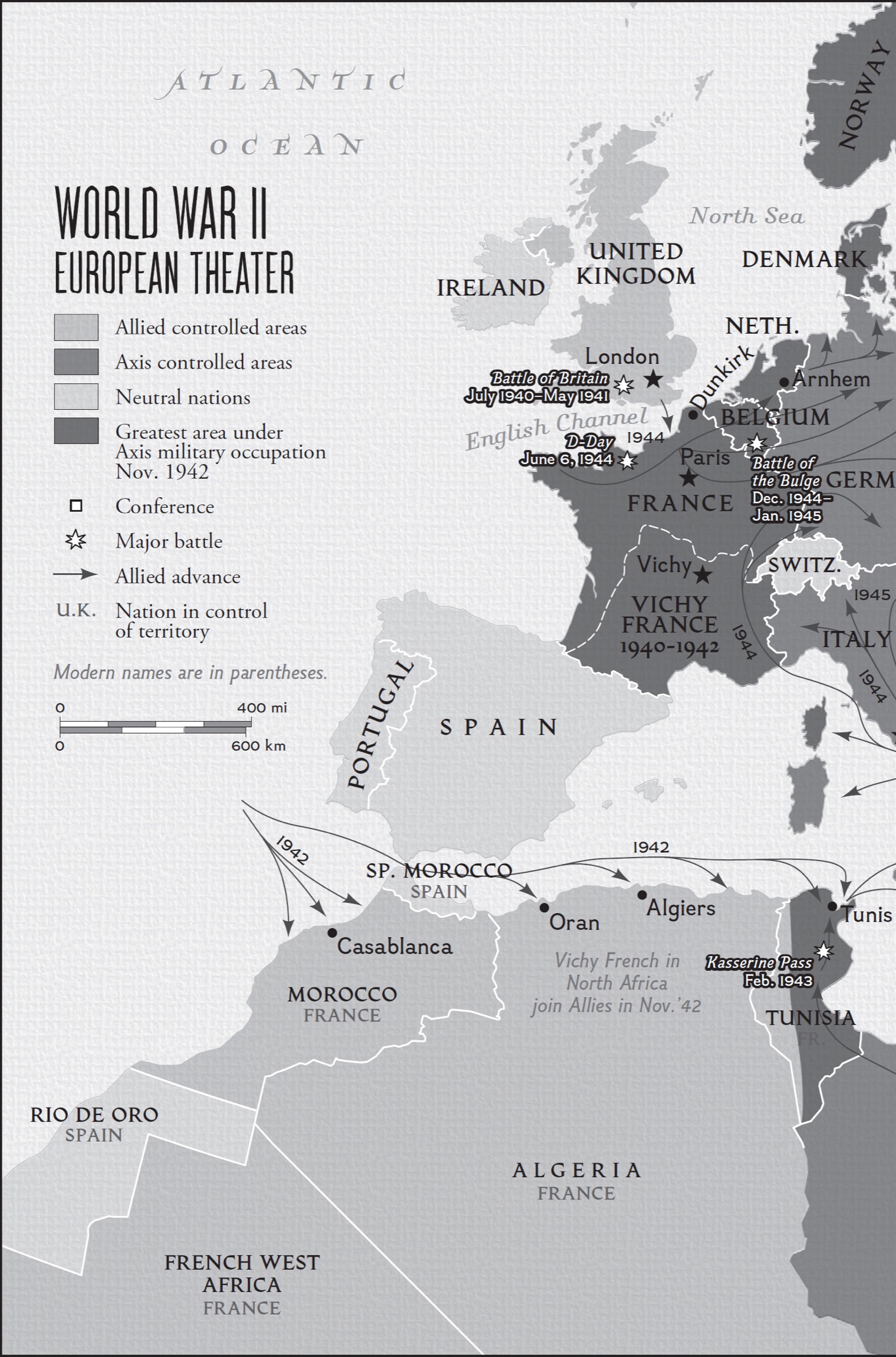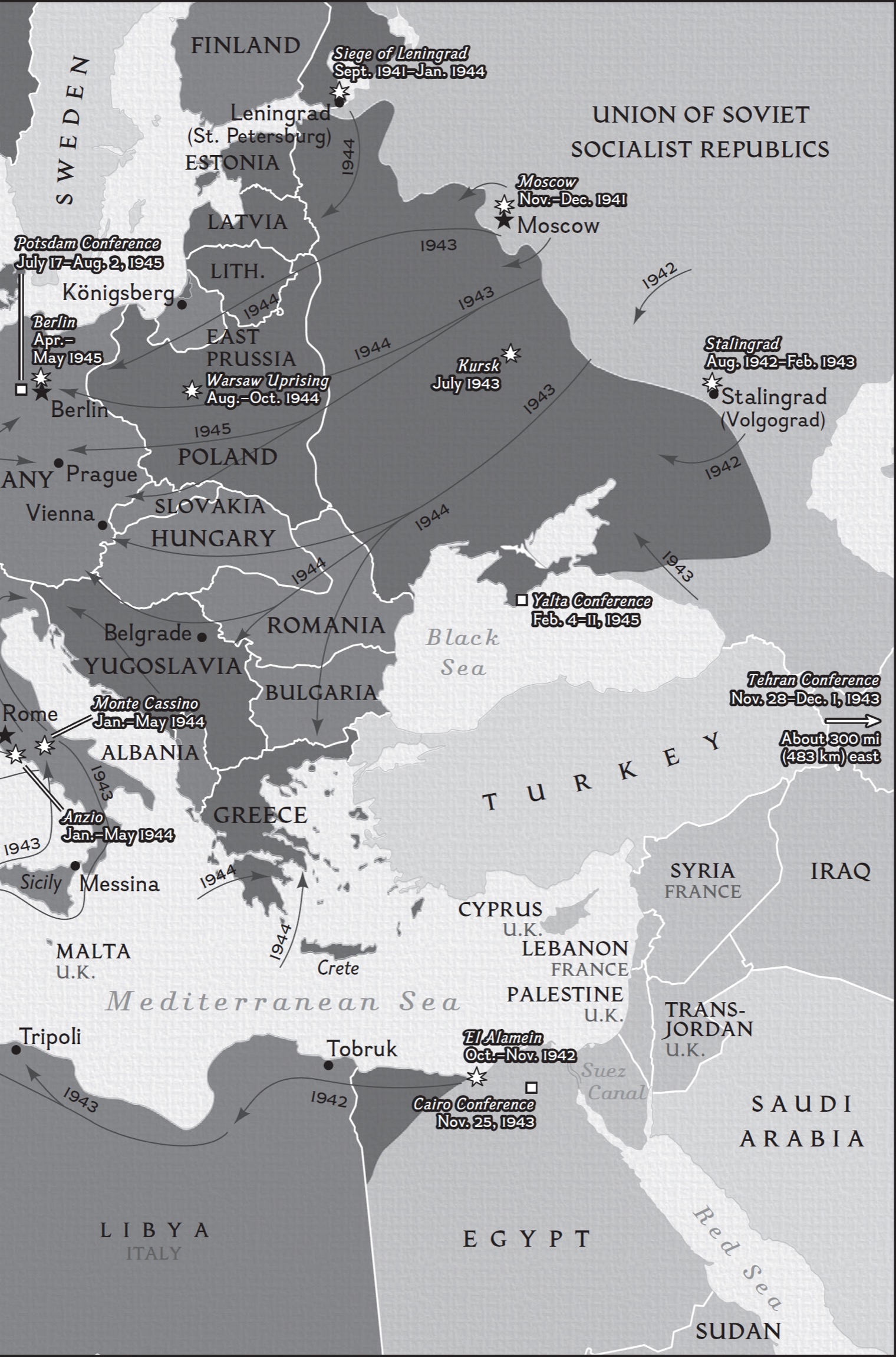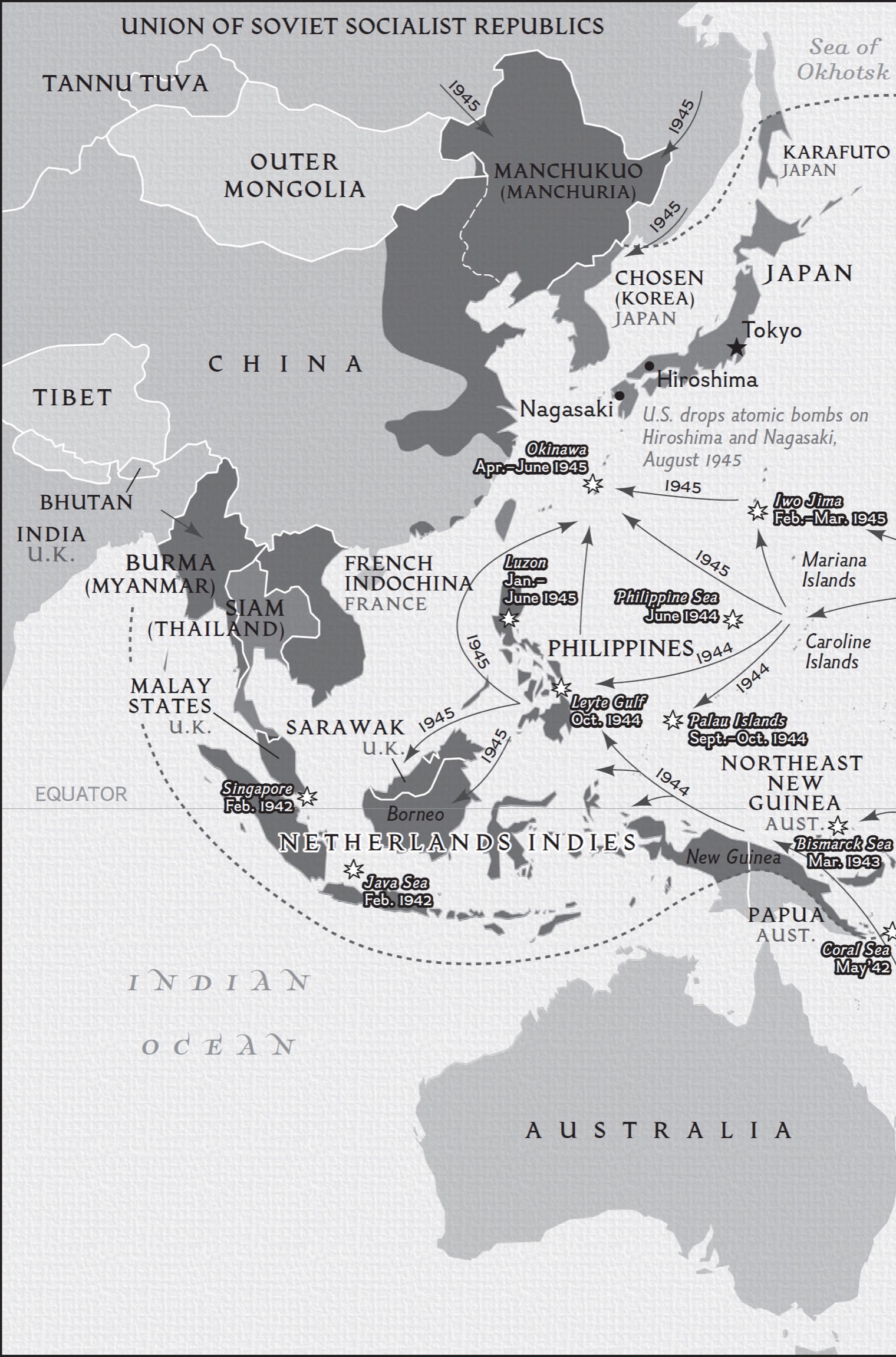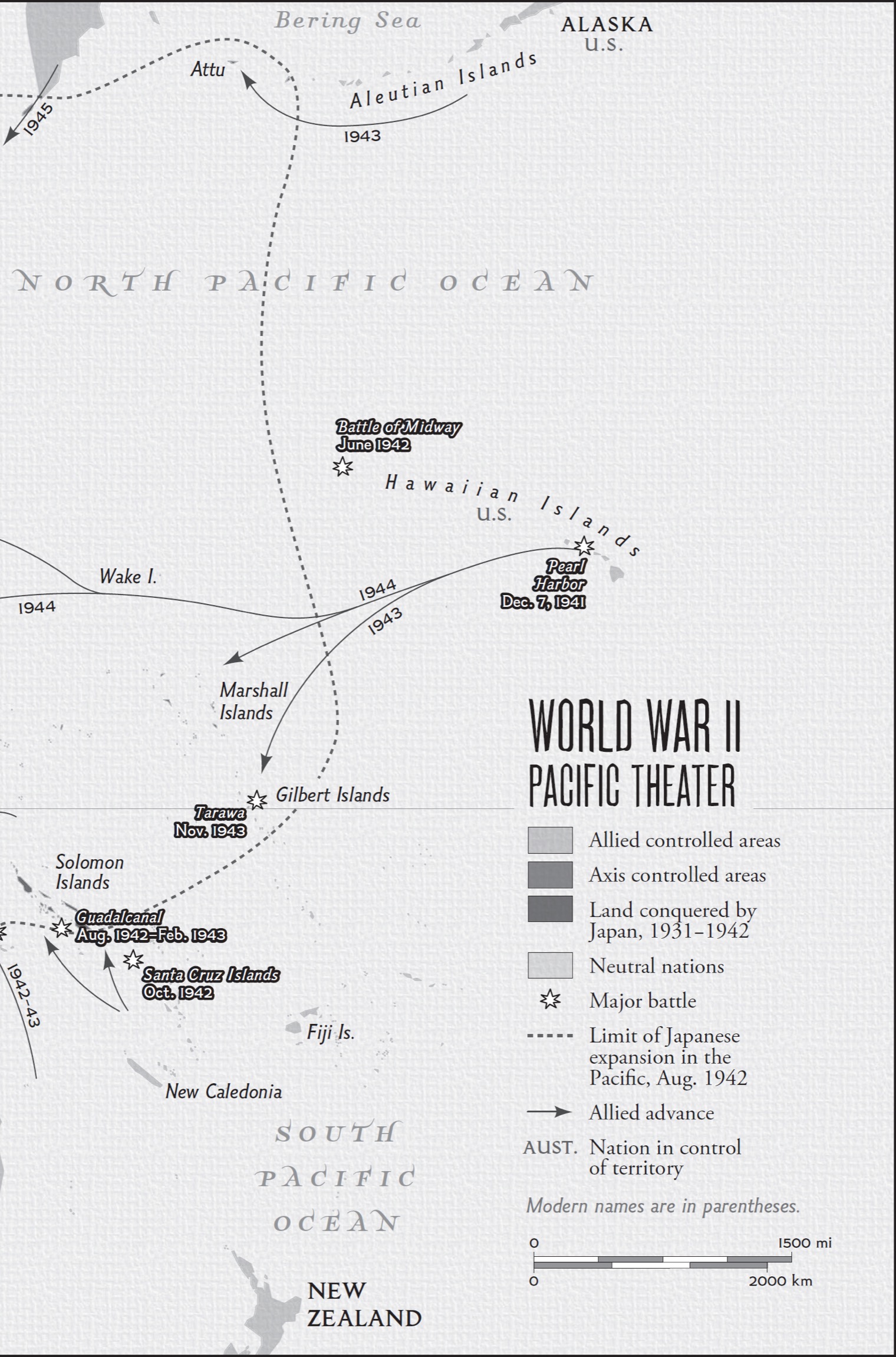Contents
ALSO BY WINSTON GROOM
N ONFICTION
Conversations with the Enemy (1982, with Duncan Spencer)
Shrouds of Glory (1995)
The Crimson Tide (2002)
A Storm in Flanders (2002)
1942 (2004)
Patriotic Fire (2006)
Vicksburg, 1863 (2009)
Kearnys March (2011)
Shiloh, 1862 (2012)
The Aviators (2013)
The Generals (2015)
F ICTION
Better Times Than These (1978)
As Summers Die (1980)
Only (1984)
Forrest Gump (1986)
Gone the Sun (1988)
Gump and Co. (1995)
Such a Pretty, Pretty Girl (1998)
El Paso (2016)
Published by National Geographic Partners, LLC
1145 17th Street NW Washington, DC 20036
Copyright 2018 Winston Groom. All rights reserved. Reproduction of the whole or any part of the contents without written permission from the publisher is prohibited.
NATIONAL GEOGRAPHIC and Yellow Border Design are trademarks of the National Geographic Society, used under license.
Library of Congress Cataloging-in-Publication Data
Names: Groom, Winston, 1944- author.
Title: The allies : Roosevelt, Churchill, Stalin, and the unlikely alliance that won World War II / Winston Groom.
Description: Washington, D.C. : National Geographic, [2018] | Includes bibliographical references and index.
Identifiers: LCCN 2018027574 | ISBN 9781426219665 (hardback)
Subjects: LCSH: World War, 1939-1945Biography. | Roosevelt, Franklin D. (Franklin Delano), 1882-1945. | Churchill, Winston, 1874-1965. | Stalin, Joseph, 1878-1953. | Heads of stateBiography. | BISAC: HISTORY / Military / World War II. | HISTORY / Modern / 20th Century. | BIOGRAPHY & AUTOBIOGRAPHY / Presidents & Heads of State.
Classification: LCC D736 .G735 2018 | DDC 940.53092/2dc23
LC record available at https://lccn.loc.gov_2018027574
Since 1888, the National Geographic Society has funded more than 13,000 research, exploration, and preservation projects around the world. National Geographic Partners distributes a portion of the funds it receives from your purchase to National Geographic Society to support programs including the conservation of animals and their habitats.
Ebook ISBN9781426219863
National Geographic Partners
1145 17th Street NW
Washington, DC 20036-4688 USA
Get closer to National Geographic explorers and photographers, and connect with our global community. Join us today at nationalgeographic.com/join
For rights or permissions inquiries, please contact National Geographic Books Subsidiary Rights:
Interior design: Nicole Miller
18/QGF-PCML/1
v5.3.2
a
To Susan Helmsing Groom,
whose mere presence is
a brilliant inspiration.
CONTENTS
PROLOGUE
November 1943
It was a sunny day in Tehran when Winston Churchill and Franklin Delano Roosevelt arrived by air to attend the second Allied leadership summit of World War II, code-named Eureka. Joseph Stalin, who did not like to fly, had finally agreed to a meeting with the American president and the British prime minister in the recently occupied Persian capital, which he could reach by private train from Moscow. Great Britain, the United States, and the Soviet Union had fought alongside one another for nearly two years to stem the Nazi tide that threatened Europe, yet their leaders had never before gathered together in the same room. Churchill himself later remarked that it was the greatest concentration of political power the world had yet seen.
On the afternoon of the first day, Stalin appeared at Roosevelts door with a hearty welcome. He insisted that Roosevelt stay at the Russian Embassy in Tehran, citing a suddenly uncovered assassination plot. Polio had long since destroyed Roosevelts leg muscles, so he was appreciatively surprised that his suite at the embassy included a newly built handicapped-style bathroom. But an atmosphere of suspicion hung over the proceedings: if Roosevelt had been expected to stay in the Soviet building all along, as the new bathroom suggested, it probably meant that he was being surveilled by Stalins cronies. After a long chat, Stalin went away amused by the American presidents cheery, casual approach to diplomacy but judged him a lightweight compared to the more formidable Churchill. Roosevelt, on the other hand, believed he could do business with Stalin, known familiarly between him and Churchill as Uncle Joe.
In Tehran, the three great leaders were perfectly in character. Roosevelt was charming as always, attempting with finesse to establish favor with his Soviet counterpart. He made martinis and cracked jokes to ease the obvious tension between the other two Allies. Stalin remained quiet and mysterious, projecting an icy confidence in his crisp military uniform and epaulets. Churchill stubbornly resisted playing nice with the Russian dictator and focused conversation on the wars multiple fronts, especially the eastern Mediterranean. While Stalin insisted on a definitive date for the cross-Channel Allied invasion of France that would open a second front against the Germans, Churchill urged the American president to consider delaying the invasion slightly in favor of new operations to get at Germany through the southern Balkans. Roosevelt sided with Stalin: Operation Overlord (now remembered as D-day) would be the main event.
FDR had always been more favorably disposed toward the massive Communist state and its leader than had his British counterpart. Ever the bon vivant, Roosevelt approached Stalin with characteristic confidence in his own sparkling charisma. So when the two finally met in Tehran, it is perhaps not surprising that he found Stalin personally engaging. (Influenced by Walter Durantys New York Times articles praising the Soviet regime, one of Roosevelts first acts as president had been to diplomatically recognize the Soviet Union as a legitimate nationagainst the wishes of a large number of his countrymen and his own mother.) As soon as Stalin became an ally of the United States in the war against Hitler, he was routinely portrayed in the American media as a benign, avuncular figure or as a bold, fearless leader. And yet up to this point in history, Uncle JoeTime magazines 1942 Man of the Yearhad systematically killed at least 20 million of his fellow citizens.
Churchill, for his part, hated communism from its inception, and he remained distrustful of Stalins intentions even after the Soviet Union openly avowed that it had no designs on any countries in Europe. At Tehran, Churchill was loath to allow the relationship he had carefully cultivated with the American president to be undermined by Stalins insistence on definite plans for a second front and was put off by Roosevelts eagerness to please the Communist leader. Stalin frequently tossed out words like freedom, liberty, and democracy, in regard to such Soviet-occupied countries as Poland, prompting Churchill to recall Humpty Dumptys conversation with Alice: When I use a word it means just what I choose it to meanneither more nor less.


